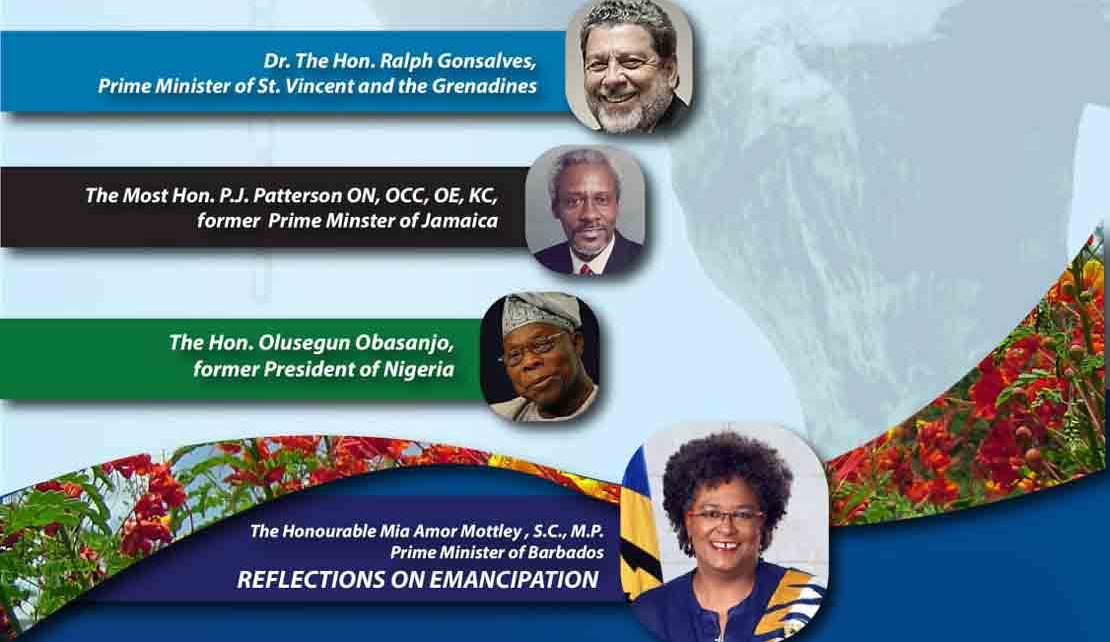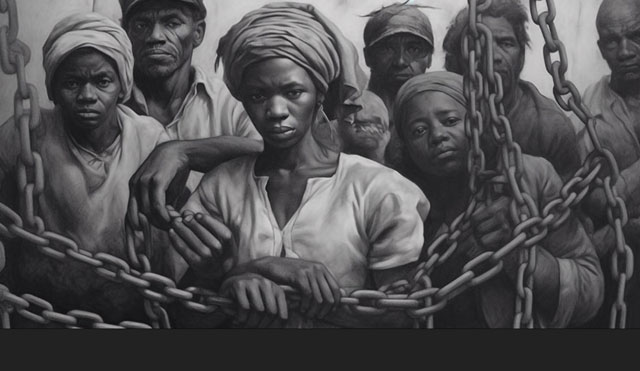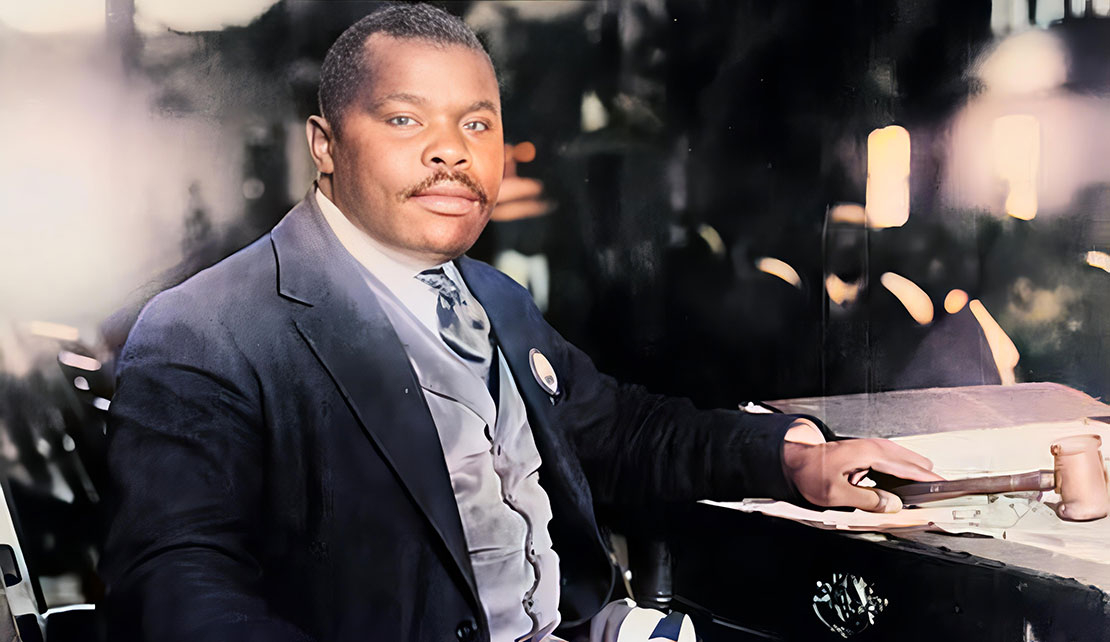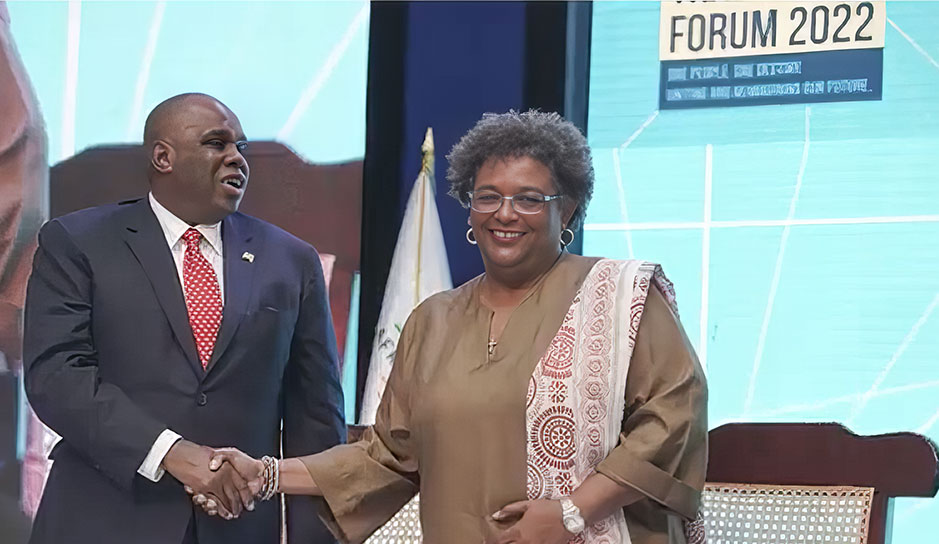CARICOM | The Historic Bridgetown Meeting: A Clarion Call to Africa and its Diaspora

MONTEGO BAY, October 18, 2023 - In the heart of Bridgetown, Barbados, a momentous event took place, when on 3rd August 2023, a symphony of ideas echoed across the oceans, resonating with the spirits of those who once endured, those who thrived, and those who dream of a brighter tomorrow, resonating with the spirits of sons and daughters of Africa.
It was a gathering of four distinguished leaders: Olusegun Obasanjo, former president of Nigeria; Percival James Patterson, former prime minister of Jamaica; Ralph E. Gonsalves, Prime Minister of St Vincent & the Grenadines; and Mia Mottley, Prime Minister of Barbados.
The reverberations of their Conversation carry a promise of hope and unity for the Continent of Africa and for the African Diaspora.The following is a synopsis of the outcomes of that historic Conversation:
Reparations - Healing the Past, Shaping the Future
 The weight of history is heavy, but the will of the diaspora is indomitable. At the forefront of the conversation was the clarion call for reparations.
The weight of history is heavy, but the will of the diaspora is indomitable. At the forefront of the conversation was the clarion call for reparations.
Defined with clarity and conviction, reparations are about repairing the historical legacies of underdevelopment directly linked to Native Genocide and African Enslavement. It's not just about compensation; it's about justice, acknowledgment, and rectification.
This clarion call is not just for a few but for every African and African-descended nation and population group. Imagine a united front, with every individual from the diaspora, standing shoulder to shoulder, echoing the need for reparations for Native Genocide and African Enslavement. Such unity has the power to right the wrongs of history.
Building Consciousness - Keeping the Flame Alive
To move forward, we must look back, understand, and embrace our past. Building consciousness is about grounding ourselves in our rich heritage and empowering the future.
A vital resolution from the conversation was to make reparations an intrinsic part of the annual Emancipation commemoration/celebration.
For what is emancipation, if not a constant reminder of our ancestors' resilience, strength, and spirit?
For the African diaspora, every Emancipation Day and every Reparations event is a tribute to survival, freedom, and the perpetual journey towards justice. It's about ensuring that our youth, and generations to come, are well-versed with the history of the trans-Atlantic slave trade, the abolition of slavery, and the fight for reparations.
Knowledge is power, and through educational initiatives like standard textbooks in secondary and tertiary institutions, we ensure this power passes on.
But this consciousness is more than just memory. It's about a mindset, a mentality that equips us to stand firm against forces that might be detrimental to our well-being. In the face of challenges, we won't just resist; we will resist creatively, with the spirit of our ancestors guiding us.
It’s a call to engage in a dialogue that spans generations - a dialogue between the current adult Black or African population, our revered ancestors, and our bright-eyed children.
Establishing Pan-African Links - Weaving the Web of Unity
 Solidarity is the cornerstone of progress. When the diaspora reaches out, hand in hand, we create an unbreakable chain that spans continents and generations. From the talks emerged a vision of enhanced Pan-African connectivity, a dream to solidify bonds between African nations and CARICOM.
Solidarity is the cornerstone of progress. When the diaspora reaches out, hand in hand, we create an unbreakable chain that spans continents and generations. From the talks emerged a vision of enhanced Pan-African connectivity, a dream to solidify bonds between African nations and CARICOM.
Immediate steps were charted out to breathe life into the decision made at the First Africa/CARICOM Summit – the birth of an AU/CARICOM Commission.
But why stop there? The vision extends beyond, evolving into an "Africa/Brazil/Caribbean/Diaspora Commission" or ABCD Commission. This majestic bridge aims to connect the 1.4 billion souls in Africa with the 500 million in the diaspora. It’s not just about numbers; it's about unity, strength, and shared purpose.
Moreover, leadership collaborations are on the horizon. Picture the CARICOM leadership being part of AU summits and vice versa, enabling dialogue and joint strategizing on critical issues faced by both regions.
Africa/CARICOM Collaborations - Synergy in Action
 Unity on paper is significant, but its real impact is felt when translated into collaborative actions. The conversation between these visionary leaders laid down clear pathways for Africa and CARICOM to come together, leveraging their collective strengths.
Unity on paper is significant, but its real impact is felt when translated into collaborative actions. The conversation between these visionary leaders laid down clear pathways for Africa and CARICOM to come together, leveraging their collective strengths.
- Public Health: With a shared vision, both regions can pioneer advancements in the realm of public health, encompassing vaccine production and other therapeutics. Together, they hold the potential to safeguard their populations against global health challenges.
- Agriculture and Food Security: By pooling knowledge, resources, and best practices, Africa and CARICOM can chart out sustainable pathways to ensure food security for their people.
- Science, Technology, and Digital Connection: A shared commitment to propel both regions into the future, harnessing the power of science and technology. Imagine a digital bridge connecting the two regions, facilitating communication, trade, education, and so much more.
- United Front on Global Platforms: When Africa and CARICOM operate as a seamless bloc at influential platforms like the United Nations and the G77 plus China, their collective voice amplifies, ensuring their concerns and aspirations do not go unheard.
- Economic Collaborations: Endorsements were extended for initiatives such as bringing the African Export-Import Bank's operations to the Caribbean. Moreover, there was a resonating emphasis on taking control of the "value-added production" of natural resources and agricultural products, ensuring that the wealth generated benefits local communities.
- Demographic Collaboration: Recognizing the aging populations in many Caribbean nations, the leaders envisioned a future where the Caribbean welcomes young, economically active Africans. These fresh minds and hands will not only rejuvenate the Caribbean economies but also weave tighter socio-cultural ties.
Collaborating on the Restructuring of the Global Landscape
In the face of a constantly evolving global scenario, it's imperative for the diaspora to have a seat at the decision-making tables. The conversation delved deep into this, emphasizing the need for collective action to reshape international economic and political orders.
- Claiming Rightful Positions: The call was unanimous to campaign for a permanent seat for Africa on the United Nations Security Council. But the vision doesn't stop there. Inclusion of Africa in influential groups like the G20 and the G7 is essential to ensure that the continent's interests are represented and safeguarded.
- Activism for Global Reforms: The diaspora’s strength lies in its unity. The leaders championed for robust Caribbean, African, and African Diaspora activism in support of the "Bridgetown Initiative." This plan, conceived by CARICOM, seeks to restructure international financial institutions. Its goal is to provide increased financial and policy support for developing countries, ensuring that they're equipped to address challenges, including the pressing Climate Crisis.
- Reparations within the UN Framework: Reiterating the diaspora's collective stance on reparations, the leaders advocated for its inclusion as a special category within the United Nations Sustainable Development Goals agenda. This isn't just about acknowledgment but about ensuring concrete actions and resources to mend the wounds of history.
This conversation in Bridgetown wasn’t just another dialogue. It was a clarion call, a beacon of hope, and a roadmap for the future. To the African diaspora in the Caribbean and the United States: the torch has been lit, and the path has been charted. Together, we march towards a brighter, united, and prosperous tomorrow.

 En
En  Ar
Ar